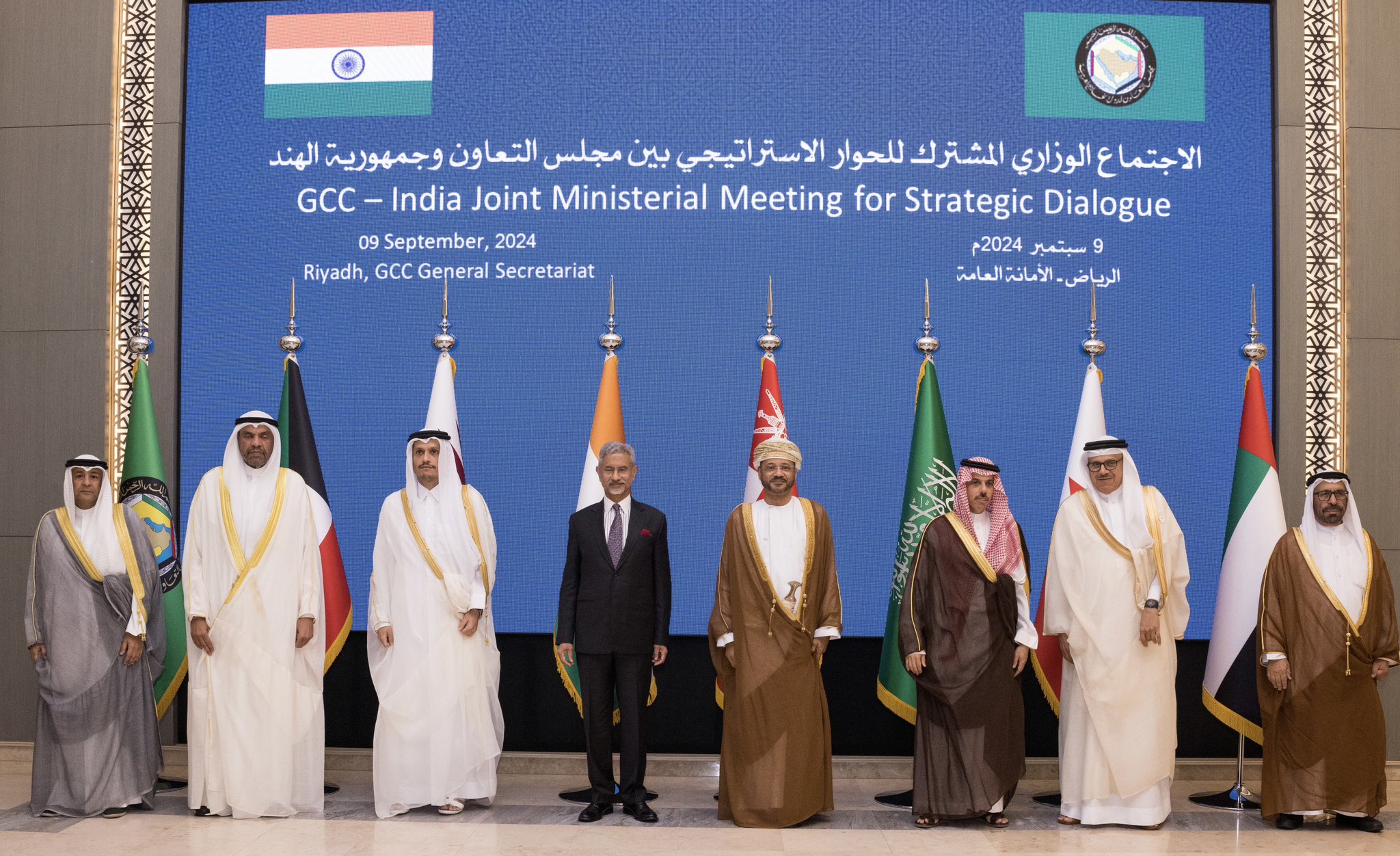On September 8, India’s External Affairs Minister, Dr. S. Jaishankar, visited Riyadh for a historic event—the first-ever India–GCC Joint Ministerial Meeting for Strategic Dialogue. This meeting, co-chaired with Qatar’s Prime Minister and Foreign Minister, Sheikh Mohammed bin Abdulrahman Al Thani, marked a new era in India’s diplomatic engagement with the Gulf.
The GCC is home to nearly 8.9 million Indian expatriates, representing the largest Indian diaspora in any region. These Indians are vital contributors to the region’s economy and India’s—sending home billions in remittances every year.
Historically, the relationship between India and the GCC has evolved steadily over time, driven by mutual economic interests, geographic proximity, and shared strategic concerns. The first India-GCC Political Dialogue took place in 2003, marking the beginning of a structured engagement between India and the Gulf bloc.
This dialogue laid the foundation for stronger political and economic ties, focusing on key areas such as energy security, trade, and the welfare of the large Indian expatriate community living in the region. Since then, relations have continued to grow, encompassing not only trade and investment but also security cooperation, cultural exchange, and technology partnerships.
In September 2022, a major breakthrough came when India and the GCC signed a Memorandum of Understanding (MoU) on the Mechanism of Consultations, further institutionalizing their partnership. This MoU created a formal framework for regular annual consultations between India’s External Affairs Ministry and the GCC-Troika.
Earlier last year, in March 2023, another important milestone was reached when the first India-GCC Senior Officials Meeting took place in Riyadh. This meeting served as a platform for both sides to discuss a broad range of issues, from economic collaboration and trade enhancement to security and defense cooperation. It also provided an opportunity to revisit the MoU and explore new areas of collaboration, including digital infrastructure and climate change.
The progress made during this meeting further reinforced the mutual trust between India and the GCC, paving the way for the landmark India-GCC Joint Ministerial Meeting for Strategic Dialogue in September 2024.
The GCC, as a collective entity, has become one of India’s most important trading partners, with bilateral trade reaching an impressive $161.59 billion in the 2023-24 fiscal year. That includes over $105 billion in imports, much of it oil and gas, as the Gulf supplies 35% of India’s oil and 70% of its natural gas needs. This interdependence reflects the deepening economic ties between the two regions.
But there’s more. India is not just looking at the GCC as a source of energy. The recent visit also highlighted ongoing efforts to boost investment partnerships , particularly in areas like green hydrogen, clean energy, and advanced technologies.
With initiatives such as Saudi Vision 2030 and the UAE’s Vision 2031 , the Gulf states are actively transforming their economies. This opens up new avenues for cooperation, particularly as India seeks to diversify its energy sources and further invest in sustainable development.
During the Strategic Dialogue, India and the GCC agreed on a Joint Action Plan for 2024–2028, focusing on advancing cooperation in academic and scientific fields. This plan aims to set specific programs for enhancing cultural collaboration between the two sides, allowing universities and academic institutions in the GCC and India to cooperate in scientific research and development. The GCC Secretariat has been tasked with coordinating the implementation of this Joint Action Plan.
On the defense and security front, India and the GCC share a common vision for regional stability . Over the years, both sides have intensified cooperation, conducting joint military exercises such as Al Nagah with Oman and Zayed Talwar with the UAE. This reflects a growing convergence on security concerns, especially as geopolitical shifts reshape the broader Middle East and South Asia.
Beyond the numbers and policy, the human aspect of this relationship is essential. The Indian diaspora in the Gulf, nearly 66% of all non-resident Indians , has been recognized for its hard work, peaceful nature, and major contributions to the development of GCC countries. Their presence is not just economic; it’s a bridge connecting cultures, traditions, and people across the Arabian Sea.
By – Vinod Kumar (Dubai)




















